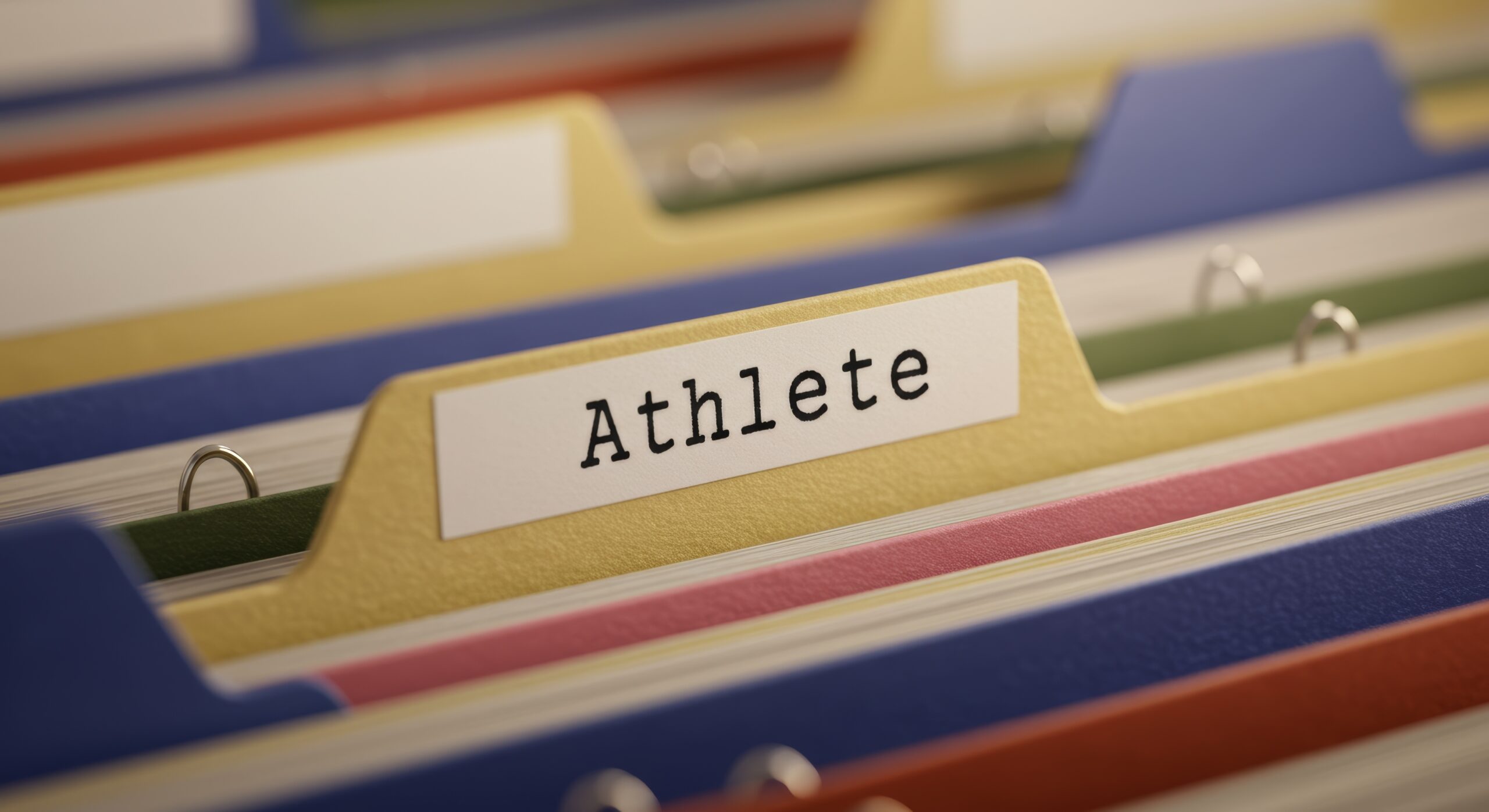NIL Money Moves: Key Financial Steps After Signing Your First Deal
Congratulations on signing your first NIL deal, but now the real work begins with smart NIL money moves that protect your earnings and build lasting wealth. Many student athletes celebrate their NIL contracts without realizing the financial responsibilities that come with this new income stream. NIL income brings exciting opportunities but also creates tax obligations, compliance requirements, and spending temptations that can quickly derail your financial success.
Without proper planning, athletes often lose significant portions of their earnings to unexpected taxes, penalty fees, and poor spending decisions. The difference between financial success and struggle often comes down to the financial moves you make in those first 90 days after signing. Early NIL financial planning helps athletes protect their income, avoid costly mistakes, and build long-term wealth that extends far beyond their playing careers.
Understand Where NIL Money Comes From
Student athletes earn NIL income through multiple revenue streams that each carry different tax and reporting requirements. Major national and local brands offer endorsement opportunities to student athletes, while smaller businesses also provide valuable partnerships for emerging athletes. NIL deals include autograph signings, product endorsements, social media posts, and promotional activities that generate both cash and non-cash compensation.
Understanding your income sources helps you plan the right NIL money moves for tax compliance and financial growth. Endorsements and sponsorships typically provide the largest payouts, while social media partnerships offer steady monthly income. Merchandise sales, appearance fees, and camp instruction create additional revenue streams. Personal branding opportunities through YouTube channels, podcasts, and online courses can generate passive income that continues growing throughout your career.
Cash versus non-cash NIL income both require careful tracking for tax purposes. When brands provide cars, housing, apparel, or equipment instead of direct payment, these benefits still count as taxable income at fair market value. Athletes must report the retail value of all gifts and benefits on their tax returns, making detailed record-keeping essential for avoiding IRS problems down the road.
Plan for NIL Tax Implications Immediately
NIL tax planning requires immediate attention because student athletes become self-employed individuals responsible for quarterly tax payments and compliance reporting. Athletes must file tax returns if they earn at least $400 in NIL activities or if total income exceeds standard deduction limits. Waiting until tax season creates costly penalties and missed opportunities for legitimate deductions that reduce your overall tax burden.
Know Your IRS Reporting Rules
Most NIL payments require completing Form W-9 so paying entities can report your income to the IRS, and athletes typically receive Form 1099-NEC for payments over $600. The $600 threshold remains for 2025; a new law raises it to $2,000 starting with tax year 2026 (filed in 2027). Self-employment tax of 15.3% applies to 92.35% of your net NIL earnings when those net earnings are $400+, covering Social Security and Medicare contributions. This tax hits in addition to regular income taxes, making the total tax burden higher than many athletes expect. Athletes must also track business expenses like travel, equipment, and professional services that can reduce taxable income through legitimate deductions.
Avoid Tax Surprises
Smart NIL money moves include setting aside 30-40% of every payment for federal and state taxes before spending any income. Athletes earning more than the standard deduction ($15,000 for single filers in 2025) must file tax returns, and quarterly estimated tax payments prevent penalties and interest charges. If you’re claimed as a dependent, your filing thresholds differ; however, the $400 SE-income rule still requires filing. Opening a separate tax savings account immediately after signing your first deal creates a buffer against tax season surprises. Athletes in high-tax states may need to save even more, making professional tax guidance essential for accurate planning.
Create a Budget for NIL Income
Budgeting NIL income requires different strategies than traditional employment because payments often arrive irregularly and vary significantly in size. Athletes need systems that handle both large lump-sum payments and smaller recurring income streams. Proper budgeting ensures you meet tax obligations, cover living expenses, and save for future goals without overspending during high-earning periods.
The 50/30/20 Rule for Athletes
The 50/30/20 budgeting rule adapts well to NIL income when modified for athlete-specific needs and irregular payment schedules. Allocate 50% of after-tax income to essential needs like housing, food, transportation, and education expenses. Reserve 30% for personal wants including entertainment, dining out, and discretionary purchases that improve your quality of life. Dedicate 20% to savings and investments that build long-term wealth and provide security for life after sports. Athletes should calculate these percentages based on net income after setting aside money for taxes and business expenses.
Separate Accounts
Opening multiple bank accounts creates automatic systems for managing different aspects of your financial life without constant decision-making. Maintain a business checking account for all NIL income and expenses to simplify tax reporting and business record-keeping. Create a separate tax savings account that receives automatic transfers of 30-40% from every NIL payment. Establish dedicated savings accounts for specific goals like car purchases, housing down payments, and investment funding. This account separation prevents accidental overspending and ensures money remains available when needed for taxes and planned expenses.
Protect Your NIL Income
NIL income protection requires comprehensive strategies that address both immediate risks and long-term threats to your earning potential. Student athletes face unique vulnerabilities including career-ending injuries, reputation damage, and contract disputes that can eliminate income streams overnight. Smart protection strategies preserve wealth while maintaining the flexibility to capitalize on new opportunities as they arise.
Insurance coverage forms the foundation of income protection for student athletes managing significant NIL earnings. Disability insurance replaces income if injuries prevent you from fulfilling NIL contracts or continuing your athletic career. Liability insurance protects against lawsuits related to endorsements, social media posts, or public appearances that could result in financial damages. Some athletes also consider life insurance policies that provide financial security for family members who depend on NIL income.
Contract safeguards become increasingly important as NIL deals grow in size and complexity. Many contracts include behavioral clauses that require repayment of advances or bonuses if athletes violate moral standards or legal requirements. Legal review of all contracts before signing protects against unfavorable terms, while financial review ensures you understand tax implications and payment structures. Building relationships with experienced attorneys and financial advisors familiar with NIL regulations helps you navigate complex deals safely and profitably.
Build Long-Term Wealth With Smart Investments
Building wealth through NIL income requires investment strategies that balance growth potential with the unique timeline constraints of athletic careers. Student athletes typically have shorter earning periods than traditional careers, making early wealth accumulation critical for long-term financial security. Smart investments compound over time, transforming temporary NIL income into permanent wealth that supports you throughout life.
Beginner-friendly investment strategies focus on low-risk, diversified approaches that don’t require extensive financial knowledge or constant management. High-yield savings accounts provide secure storage for emergency funds while earning better returns than traditional checking accounts. Index funds offer broad market exposure with minimal fees, making them ideal for athletes who want market growth without picking individual stocks. Conservative portfolios that mix stocks and bonds provide steady growth while protecting against major losses during market downturns.
Retirement planning creates the most powerful wealth-building opportunity for student athletes who start early in their careers. Roth IRA contributions use after-tax dollars but provide tax-free growth and withdrawals in retirement, making them ideal for athletes in lower current tax brackets. Traditional IRAs offer immediate tax deductions but require taxes on retirement withdrawals, better suited for athletes expecting lower future tax rates. Starting retirement savings during college allows decades of compound growth that can create millions in retirement wealth from relatively modest contributions.
Choose the Right Entity Structure for NIL Income
Business entity selection affects tax obligations, liability protection, and operational complexity for student athletes earning significant NIL income. The right structure depends on income levels, number of deals, business expenses, and long-term goals for your personal brand and financial planning. Making the wrong choice can cost thousands in unnecessary taxes or create compliance burdens that interfere with athletic and academic responsibilities.
Many successful student athletes establish Limited Liability Companies (LLCs) or S-Corporations to separate business operations from personal finances and potentially reduce tax obligations. LLCs provide liability protection that shields personal assets from business-related lawsuits while offering flexible tax treatment and simple operational requirements. S-Corporations may reduce self-employment taxes on profits beyond reasonable salary, but the administrative burden means they’re not ideal for everyone.
Entity formation also provides professional credibility when negotiating larger deals and creates systems for managing multiple income streams efficiently. Business bank accounts, separate bookkeeping, and formal contracts demonstrate professionalism to potential partners while simplifying tax preparation and financial planning. However, entity maintenance requires annual filings, potential state fees, and ongoing compliance that adds complexity to your financial life, making professional guidance essential for making the right choice.
Work With NIL-Focused Financial Advisors
Student athletes need specialized financial guidance that addresses the unique challenges of managing NIL income while maintaining NCAA eligibility and academic performance. Traditional financial advisors often lack experience with NIL regulations, self-employment taxes, and the irregular income patterns common in athletic careers. NIL-focused professionals understand these complexities and provide strategies tailored specifically for student athlete financial success.
Specialized support becomes essential as NIL deals grow in complexity and value, requiring expertise in tax planning, contract structuring, investment management, and compliance monitoring. NCAA regulations continue evolving, creating ongoing compliance risks that require professional monitoring and guidance. IRS rules for self-employment income, quarterly tax payments, and business expense deductions create additional complexity that can result in costly mistakes without proper guidance.
PMG PRIVATE NIL provides comprehensive financial services designed specifically for student athletes navigating NIL opportunities and obligations. Our team handles tax planning that maximizes deductions while ensuring full compliance with IRS requirements. We provide compliance tracking that monitors NCAA rules and helps you avoid eligibility risks. Contract review services identify potential problems and negotiation opportunities before you sign agreements. Financial education empowers you to make smart money decisions that build lasting wealth beyond your playing career.
Make the Right Moves Now for NIL Financial Success
Your financial success depends on the NIL money moves you make today, not the size of your contracts or the fame of your endorsements. Smart tax planning protects more of your earnings while ensuring compliance with IRS requirements. Proper budgeting creates systems that handle irregular income and prevent overspending during high-earning periods. Income protection strategies preserve your wealth against unexpected risks and contract disputes. Strategic investments transform temporary NIL earnings into permanent wealth that supports lifelong financial security.
Professional guidance accelerates your progress and prevents costly mistakes that can derail years of financial progress. The athletes who build lasting wealth treat their NIL opportunities as business ventures that require the same professional support and strategic planning as any successful enterprise. Taking action now with the right financial partner sets the foundation for lifelong financial success that extends far beyond your athletic career.
Take Control of Your NIL Financial Future Today
Managing NIL income is more than just tracking paychecks, it’s about building a foundation for lifelong security. With the right plan, athletes can protect their earnings, grow their wealth, and prepare for life beyond sports.
PMG PRIVATE NIL specializes in guiding student-athletes through every step of NIL financial planning, from tax preparation and contract review to wealth management and investment strategies. Our athlete-focused approach ensures you stay compliant, make smart money moves, and maximize your opportunities.
PMG PRIVATE NIL
Location: 1800 E Las Olas Blvd fl 2, Fort Lauderdale, FL 33301
Email: info@pmgnil.com
Phone: (954) 395-1225




